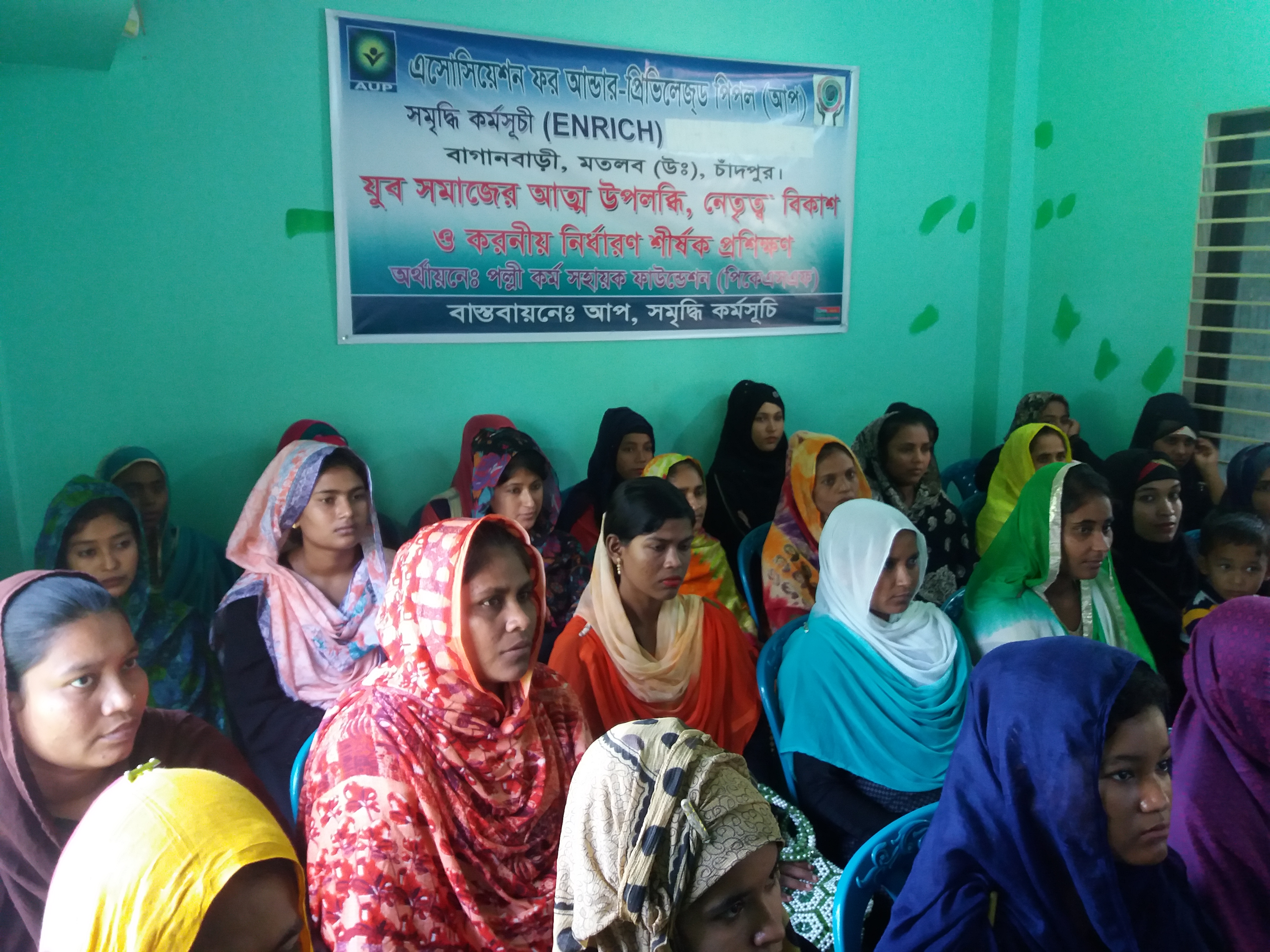Skill Development Training Program
The Skill Development Training Program, initiated by the Association for Under-privileged People (AUP) in 2002,


The Skill Development Training Program, initiated by the Association for Under-privileged People (AUP) in 2002,
was a key effort to provide underprivileged communities in rural Bangladesh with practical, income-generating skills to promote self-reliance and economic empowerment. Starting with the first training center in Tinchita, Daudkandi Upazila, Cumilla, the program expanded in 2007 with a second center in Kachua, Chandpur, becoming a vital part of AUP’s development strategy. Over its lifespan, it trained hundreds of group members, staff, and teachers, leaving a lasting legacy of skill-building.
The program utilized local resources to offer hands-on training in areas like poultry farming, beef fattening, cow rearing, fish farming, tailoring, boutique and embroidery, and group management. In its final phase during the 2023-2024 fiscal year, AUP trained 732 individuals, a notable achievement. This included 42 in poultry farming, 31 in beef fattening, 18 in cow rearing, 27 in fish farming, 49 in tailoring, 35 in boutique and embroidery, and 29 in group management, alongside 365 in microfinance skills and 136 teachers in refresher courses. Conducted at the Tinchita and Kachua centers, these sessions empowered participants—ranging from farmers to aspiring entrepreneurs—to build sustainable livelihoods.
The program’s impact was significant. For example, Rina Begum from Chandpur, trained in tailoring in 2023, now runs a small business supporting her family’s income. Similarly, the 42 poultry trainees enhanced local production and food security. Supported by one full-time staff member and two volunteers (one male, one female) in its final year, AUP maintained professionalism through workshops on management and financial efficiency.
Concluded in 2024, the program leaves behind a network of skilled individuals and two fully equipped training centers, operational since 2002 and 2007. Its influence endures as beneficiaries continue to thrive, and the centers remain valuable assets for future initiatives. This program highlights AUP’s dedication to education beyond traditional classrooms, demonstrating that skills are a pathway out of poverty.